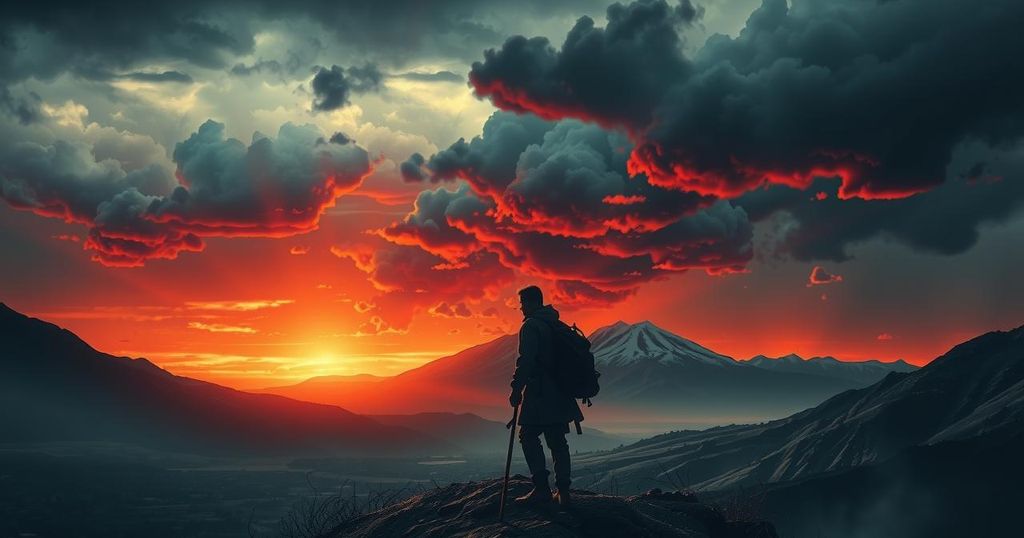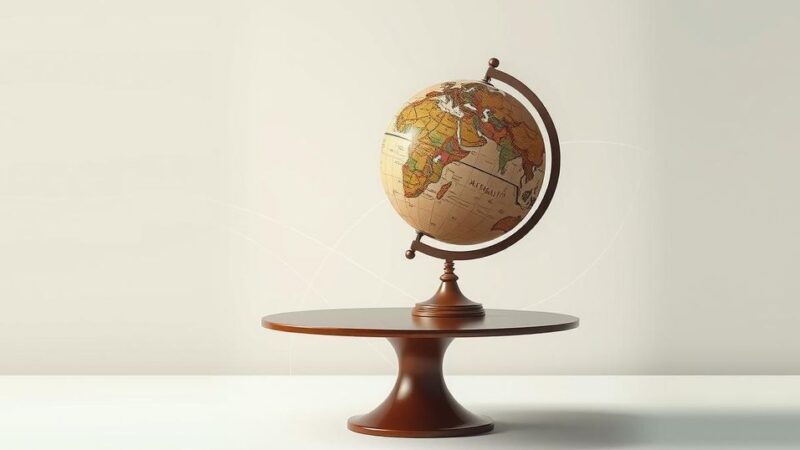M23 rebels and allied Rwandan forces have begun a significant offensive in eastern DRC, intensifying the ongoing conflict and resulting in a death toll of over 2,900. Despite a declared ceasefire, fighting continues, with military reinforcements on all sides. Local leaders and the international community struggle to address the escalating violence and its potential regional implications.
M23 rebels, with support from Rwandan forces, have initiated a fresh offensive in eastern Democratic Republic of Congo (DRC), just prior to a pivotal crisis summit involving Rwandan and Congolese leaders. Following their recent seizure of Goma, the UN reports the conflict has resulted in at least 2,900 fatalities—significantly more than the previously reported 900. Despite declaring a unilateral ceasefire, M23 and Rwandan troops resumed assaults, capturing a mining town in South Kivu and advancing towards Bukavu.
Intense clashes occurred in Nyabibwe, which is located approximately 100 km from Bukavu. M23 had previously claimed no intentions of occupying Bukavu or any other areas, leading Congolese officials, including spokesperson Patrick Muyaya, to describe the ceasefire as a strategic deception. Over three years of hostilities have included multiple ceasefires that were swiftly violated, with military reinforcements observed across the region.
The capture of Goma represents a crucial escalation in ongoing conflicts stemming from decades of strife amongst numerous armed factions in a mineral-rich expanse. Vivian van de Perre from the UN peacekeeping mission highlighted that over 2,000 bodies have been recovered, with the number expected to increase. International criminal court prosecutors are closely monitoring the escalating violence.
In Bukavu, a sizeable gathering convened for an ecumenical prayer service, where attendees expressed sentiments of exhaustion from continual conflict. Collaborative diplomatic efforts for conflict resolution are being spearheaded by regional entities, including Angola and Kenya, alongside international organizations. However, DRC’s foreign minister, Thérèse Kayikwamba Wagner, criticized the global response as lacking decisive action, stating that actions do not match the numerous declarations made.
An expert report previously indicated that Rwanda has maintained around 4,000 troops in DRC, aiming to exploit the nation’s mineral wealth. While Rwanda has not openly admitted to its military involvement with M23, it alleges that the DRC supports the FDLR, a militia formed by Hutus from the 1994 Rwandan genocide.
The M23 rebel group, active in eastern DRC since 2012, has repeatedly clashed with government forces, with Rwanda often implicated in supporting the group. This region is rich in natural resources, notably coltan and gold, making it a focal point for competition among various armed groups. Ceasefires have been frequently declared but are rarely upheld, resulting in significant loss of life and regional instability. The ongoing violence threatens to expand, potentially drawing in neighboring countries, and highlights the complex interplay of security, resources, and historical grievances in the region.
The renewed military actions by M23 and Rwandan forces in eastern DRC signal a troubling escalation of violence, exacerbating a humanitarian crisis that claims thousands of lives. Despite international efforts toward peace, local leaders express frustration at the lack of tangible support. The situation remains precarious, with widespread fears about future conflicts, necessitating comprehensive diplomatic engagement and sustained military oversight from global entities.
Original Source: www.theguardian.com






